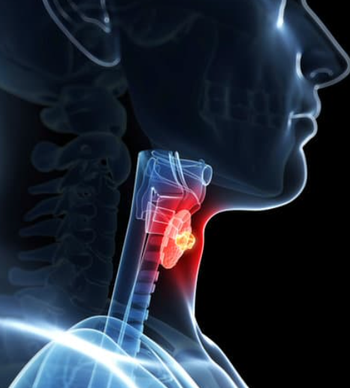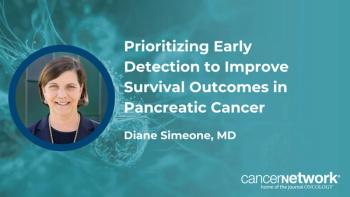
Oncology NEWS International
- Oncology NEWS International Vol 8 No 8
- Volume 8
- Issue 8
IOM Finds No Link Between Silicone Implants and Cancer
WASHINGTON-An extensive review of the medical literature finds that women with silicone breast implants are no more likely to develop cancer and several other major ailments than women in the general population. The new report by the Institute of Medicine (IOM) concludes, however, that implants commonly lead to often-painful complications that may require surgery or other treatment.
WASHINGTONAn extensive review of the medical literature finds that women with silicone breast implants are no more likely to develop cancer and several other major ailments than women in the general population. The new report by the Institute of Medicine (IOM) concludes, however, that implants commonly lead to often-painful complications that may require surgery or other treatment.
Based on all the evidence, we determined that the primary safety concern associated with breast implants is local complications resulting in pain, disfigurement, infections, and other medical problems, said Stuart Bondurant, MD, who chaired the committee that prepared the report. We could find no definite evidence linking breast implants to cancer, immunologic diseases, neurologic problems, or other systemic diseases.
The Department of Health and Human Services funded the report, Safety of Silicone Breast Implants, as directed by Congress.
To complete its report, the committee evaluated more than 3,000 publications, including some 2,000 peer-reviewed articles. It is the third by a scientific panel to conclude that current evidence does not support a causal link between silicone breast implants and serious diseases such as cancer. The others were done by the UKs Independent Review Group, released in 1998, and the National Science Panel, appointed by federal judge Sam C. Pointer, Jr., who is handling the lawsuits against implant makers that have been consolidated by the federal courts.
The issue of breast implants has been a contentious and controversial one for years. The IOM excluded anyone from its committee who had participated in studies of breast implants, whose associations or prior statements might bias the results, who was involved with implant makers or relevant ongoing legal matters, or who had conflicts of interest, said Dr. Bondurant, professor of medicine and dean emeritus of the University of North Carolina School of Medicine.
Problems With Mammograms
The IOM panel cautioned that implants can make it harder to detect breast cancer on mammograms by obscuring a variable part of the breast tissue, distorting breast architecture, and especially in the presence of firm contractures, making a proper examination with proper compression of the breast more difficult and occasionally impossible.
The committee also concluded that there is no evidence that mothers with implants pass on silicone to their infants when breast-feeding. Indeed, the panel noted, higher levels of silicon, the parent element of silicone, have been detected in cows milk and commercial baby formula than in the milk of nursing mothers with implants.
As for the relatively common local complications, such as implant rupture, contraction, and deflation, the panel found it difficult to come up with a precise estimate of the frequencies of these outcomes in the absence of large, long-term, systematic follow-up studies, said vice chair Virginia L. Ernster, PhD, of the University of California, San Francisco.
In its section on cancer, the panel concluded that the available evidence fails to support an association of silicone or silicone breast implants with experimental carcinogenesis (other than rodent solid-state carcinogenesis), primary, or recurrent breast cancer, breast sarcoma, or other solid tumors, lymphoma, or myeloma.
If anything, evidence (though limited) suggests a lower risk of breast cancer in women with silicone breast implants, the report said. At a press conference, Dr. Bondurant hastened to emphasize that the report did not mean to imply any protective effect of silicone implants.
The panels review also failed to substantiate reported links between implants and a recurrence of breast cancer or an association with increased risk of sarcomas, monoclonal gammopathy of undetermined significance, and immunoglobulin G myeloma.
Articles in this issue
over 16 years ago
False positives frequent in CT lung cancer screening trialover 26 years ago
Stereotactic Core Biopsy Establishes Many Prognostic Factorsover 26 years ago
Breast Cancer Prevention With Tamoxifen Appears Cost-Effectiveover 26 years ago
NCI Discovers Gene Variations From Existing Databasesover 26 years ago
CPDR Unveils First Center Solely for Prostate Cancer Researchover 26 years ago
Going Beyond CHOP in Advanced Large-Cell Lymphomaover 26 years ago
Memorial Sloan-Kettering Opens Rockefeller Outpatient Pavilionover 26 years ago
Ernst Wynder, Pioneer in Preventive Medicineover 26 years ago
AHCPR Plans Health Care Market, Managed Care Research Centersover 26 years ago
NSAIDs May Protect Against Common GI CancersNewsletter
Stay up to date on recent advances in the multidisciplinary approach to cancer.



















































